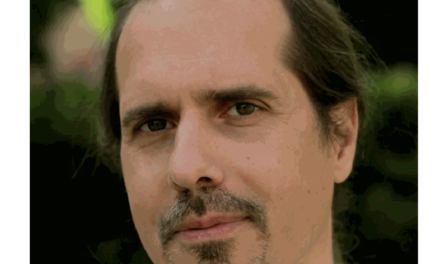Gender policy only encourages women to build their careers, but leaves those who would like to start a family to themselves, even though both are equally important, Birgit Kelle told Magyar Nemzet.
The German writer - who, incidentally, is a mother of four - published her book Gender Comedy - How Absurd Ideology Wants to Rule Our Everyday Life, which became a bestseller in Germany, in Hungarian this March. Kelle was also asked about the social effects of gender ideology and its role in German politics.
- In today's public life, although we talk about it a lot, there is still a lot of uncertainty: what exactly do we call gender ideology?
– Gender ideology is a view on the definition of gender identity. According to this, the gender of a person is not determined by their biological constitution, nor is it relevant how society defined them, whether they were raised as male or female. According to the trend, the only thing that matters in this matter is how the given person thinks about himself.
So, regardless of their natural endowments, everyone can decide for themselves whether they define themselves as male or female, or whether they want to belong to a gender at all.
– Under what influence did you start dealing with the topic?
– When I became a mother, my life changed radically. When I was young, I wasn't really interested in the question, I was more focused on building my career. However, when I started a family and held my first child in my arms, I realized what it really means to be a woman. When my children became kindergarteners, I was confronted for the first time with the dangers of gender politics. My little son came home sad one day and told me that the kindergarten teacher scolded him a lot and even punished him for playing with another little boy. When I discussed the case with the educators, they stated that they do not tolerate any behavior that suggests "toxic masculinity" in the institution.
– How is it possible that educators pay attention to this in kindergartens?
– The German state strongly supports the education of children in the spirit of gender ideology from kindergarten and elementary school. They say they do this to protect them from being misled. The children of several of my acquaintances have been asked in kindergarten whether they feel like a girl or a boy. If they immediately gave one or the other answer to the question without thinking, the kindergarten teachers talked to them for a long time about how they don't have to think about themselves the same as what their parents tell them, but they should decide for themselves which gender they want to belong to. In my opinion, a child of this age is usually not yet concerned with the issue of gender identity, despite this, educators start talking to them about it very early on.
I want to raise my children according to my own convictions, I don't want them to question the values that I convey to them as a parent at such a young age.
This is primarily why I started fighting against gender politics.
- He mentioned the term "toxic masculinity" in relation to his young son. What does it mean and where does it come from?
- "Toxic masculinity" was originally used to express the phenomenon that characterized society in the past: when many men used their physical, existential and social superiority in order to oppress women and prevent them from learning and working. Although it can be derived from here, nowadays, from the perspective of gender politics, this term has a different meaning. According to this, a boy's behavior is toxic if he is decisive and stands up for himself, essentially if he behaves "manly". According to the representatives of the ideology, in order for men to no longer be able to dominate women, they must learn to be gentle, patient and understanding in all circumstances. In my opinion, these are important qualities in a man as well, however, if we take away from them the opportunity to develop in the qualities that make them men, we rob them of the essence of their gender identity.
In Germany, because of this, a whole generation of boys grew up not knowing how to take the initiative with girls or how to act boldly, because their natural instincts were suppressed during their upbringing.
"And what about the girls?"
- The girls were not brought up in the traditional way either. In contrast to boys, in girls, the qualities that are usually dominant in men are reinforced. They are encouraged not to be cowards, not to be influenced by anyone, but to take control and solve everything on their own. And they make the biggest mistake by allowing themselves to depend on a man in any way.
– What do you think about the fact that women are becoming more assertive and men are becoming more gentle?
- One of the biggest dangers of gender politics is that it does not fight for the rights of women and men, but rather for the abolition of "woman" and "man" as categories. In my opinion, it is absolutely true that women and men are equally valuable. However, I would argue that they would be the same, that the two categories should be deleted and merged. Both groups have characteristics that make them belong to that gender. I alluded to this when I said that as a mother, I came to know the most deeply what it means to be a woman. However, I don't consider it a sin if a woman is more decisive and a man more gentle, because such people are also needed.
The point is not to strengthen these qualities in ourselves out of compulsion, but to develop those characteristics that come from our nature and try to use them for the edification of others.
- Gender politics is also represented by a type of radical feminism. How do you see the impact of gender ideology on women?
– I have experienced the impact of gender politics on my own skin. When my children were born, I wanted to stay at home with them for a few years, since they especially needed their mother during this period. At that time, I was faced with the fact that it is financially extremely risky to take such a step, since I cannot expect any support from the German state. Gender politics only encourages women to build their careers, but leaves those who would like to start a family alone, even though both are equally important.
The essence of true feminism is to support women in achieving the goal that they have personally set for themselves.
It should strive for women to be able to freely decide whether they want to assert themselves as careerists, housewives or combining family and work. Whichever path they choose, they remain just as valuable to society and should be treated accordingly. I think that politics should not tell us how to live, but should give us the opportunity to decide what kind of life we want for ourselves.
Featured image: German writer Birgit Kelle / Facebook













